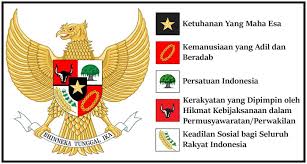Implementing citizenship education in forming mutual character in elementary school
Keywords:
Citizenship Education, Mutual Cooperation CharacterAbstract
The research aimed to determine how citizenship education instilled the character of mutual cooperation in elementary school. This qualitative study, employing a descriptive approach, sought to explore how citizenship education was integrated into the development of mutual cooperation among students. Conducted at one of the elementary school in North Lombok, Indonesia. The research involved the principal, citizenship education teacher, and class IV students as its subjects. The researcher served as the key instrument, supported by interviews, documentation, and observation tools. Findings revealed that teachers consistently applied citizenship education during the learning process. Topics such as rights, obligations, and mutual cooperation were taught, though students often struggled to comprehend the material and hesitated to ask questions for clarification. The discrepancy between student activities at school and at home posed challenges for teachers. Additionally, the lack of textbooks forced educators to rely on cellphones for instructional materials. Students found citizenship education both challenging and inconsistently engaging. To address these issues, teachers and school principals implemented habituation strategies. These strategies aimed to integrate citizenship education into daily routines, fostering mutual cooperation, where students actively participated in various activities.
Downloads
References
Adebayo, S. (2017). Civic education: A veritable tool for nation building. Nigerian Journal of Social Studies, 20(1), 167–179.
Agus. (2012). Pendidikan karakter: Strategi membangun karakter bangsa berperadaban. Yogyakarta: Pustaka Pelajar.
Cicilia, I., & Santoso, G. (2022). Pendidikan Kewarganegaraan sebagai Upaya Membentuk Generasi Penerus Bangsa yang Berkarakter. Jurnal Pendidikan Transformatif, 1(3), 146-155.
Ghufron. (2010). Integrasi nilai-nilai karakter bangsa pada kegiatan pembelajaran. Jurnal Pendidikan, 1(3), 230.
Hasbi, M., & Muktamar, A. (2023). Character building profile of Pancasila students as an effort to realize national character. ETDC: Indonesian Journal of Research and Educational Review, 2(4), 70–83.
Irawan, H., Masyitoh, I. S., & Sundawa, D. (2023, July). Concept and application of character education in the Profil Pelajar Pancasila as an effort to strengthen character in the era of disruption. In Proceeding of International Conference on Innovations in Social Sciences Education and Engineering (Vol. 3, pp. 015–015).
Ismail, H. (2020). Pendidikan kewarganegaraan. Jawa Timur: CV Penerbit Qiara Media.
Mahardhani, A. J., Cahyono, H., & Chaniago, Z. (2024). The urgency of Pancasila and citizenship education to strengthen national character with global citizenship dimensions. AL-ISHLAH: Jurnal Pendidikan, 16(4).
Maksudin. (2013). Pendidikan karakter non dikotomik. Yogyakarta: Pustaka Pelajar.
Mpate, H. (2023). Biology teachers’ implementation of the competence-based curriculum in Tanzania: challenges and opportunities. Journal of Biological Education, 1–21.
Hariyanto, M.S. (2011). Konsep dan model pendidikan karakter. Bandung: PT. Remaja Rosdakarya.
Yasmeenah, S.Z. (2021). Pentingnya pendidikan kewarganegaraan dalam membentuk etika berwarga negara serta membangun karakter bangsa. Jurnal Pancasila dan Kewarganegaraan.

Published
How to Cite
Issue
Section
Copyright (c) 2023 Mia Dara Yustisi, Ana Mulyono, Musafir Musafir

This work is licensed under a Creative Commons Attribution-ShareAlike 4.0 International License.
PIJ is licensed under a Creative Commons Attribution-NonCommercial-ShareAlike 4.0 International License.
Articles in this journal are Open Access articles published under the Creative Commons CC BY-NC-SA License This license permits use, distribution and reproduction in any medium for non-commercial purposes only, provided the original work and source is properly cited. Any derivative of the original must be distributed under the same license as the original.







